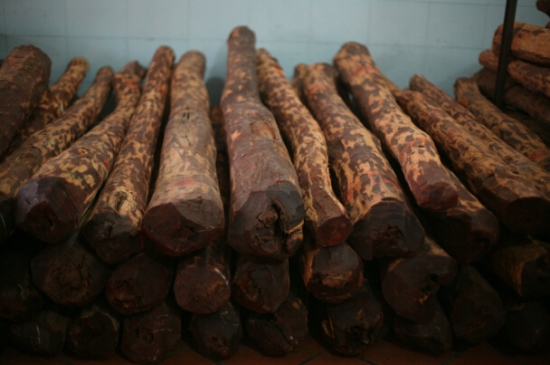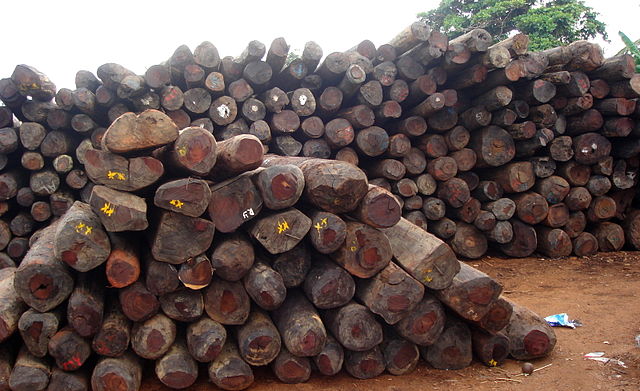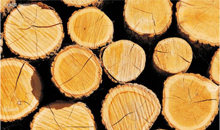Furniture that destroys forests: crackdown on 'rampant' trade in rosewood
Source:theguardian.com
Governments have launched a crackdown on the rampant billion-dollar trade in rosewood timber that is plundering forests across the planet to feed a booming luxury furniture market in China.

Governments have launched a crackdown on the rampant billion-dollar trade in rosewood timber that is plundering forests across the planet to feed a booming luxury furniture market in China.
The Convention on the Trade in Endangered Species (Cites) summit on Thursday placed all 300 species of rosewood under trade restrictions, meaning criminals can no longer pass off illegally logged species as legitimate.
Rosewood is the world’s most trafficked wild product, according to the UN Office of Drugs and Crime, accounting for a third of all seizures by value, more than elephant ivory, pangolins, rhino horn, lions and tigers put together.
With a beautiful deep red glow, it is the traditional wood used for elite, classic-style “hongmu” furniture in China: one huge carved bed was on sale recently for $1m. But due to explosive demand from China’s fast-growing middle class, the rosewood trade has soared since 2005, multiplying 65 times in value and now worth $2.2bn a year.
As a result, the forests of south-east Asia have been rapidly emptying, peaking in 2014. Traffickers are now targeting more than 80 other countries across the tropics where rosewoods grow, particularly in west Africa but also central America. China’s rosewood imports from Africa soared sevenfold between 2010 and 2014, according to a report from Forest Trends, with $216m of west African rosewood imported in the first half of 2016 alone.
Illegal gangs move swiftly from country to country, felling all the trees they can find and creating devastating boom-and-bust cycles, said the report. “When trees become scarce in one place, or authorities strengthen controls, the shady networks quickly move to another country and the deadly cycle of corruption, violence and forest destruction starts anew,” said a statement from Environmental Investigation Agency (EIA), a Cites participant.
China imported 2m cubic metres of logs and wood in 2014, according to the EIA. This is equivalent to millions of rosewood trees as only the dark, dense heartwood is used: 70-80% of the tree is often wasted.
The devastated forests left behind also no longer provide the charcoal and traditional medicines used by indigenous communities. “It is at the heart of our rural communities,” said Niger’s Cites delegate. “The demand from Asia threatens directly threatens their livelihoods.”
Lisa Handy, at the EIA, said: “We are really thrilled [with the new Cites protection]. It’s really in the nick of time to save them from extinction. The trade has exploded exponentially in the last decade. Now it really comes down to enforcement.”
The importance of protecting the entire Dalbergia genus of rosewood is that criminals can no longer pass off illegal rosewood as one of the previously unprotected species. “Officials have great difficulty in distinguishing between species,” said Guatemala’s delegate to Cites. “It is very difficult for people who are not experts, and even sometimes for the experts themselves.”
“This [summit] will be remembered for rosewood and pangolin protection,” said Brazil’s delegate, who said there would have been nothing left within three years without action.
The Cites summit also applied new protection to an African rosewood from another genus, known as Kosso, which grows in the dry forests of west Africa. It was barely exported in 2009 but exploitation has since soared and it is now is now the main rosewood timber imported by China. “The forests have been emptied,” said Benin’s delegate to Cites.
Some rosewood species can still be logged under the new rules, but will require permits that should only be granted if it is deemed sustainable. The rules could be revisited in the final Cites session next week, but this is unlikely. Rosewood is also used to make some musical instruments, such as guitars, but the new rules will not prevent musicians travelling with their instruments.
The new protections enter into force in 90 days, but need action by individual nations to have an impact. In 2013, Cites gave similar protection to every rosewood species in Madagascar, where rampant logging was taking place.
However, the EIA says the Madagascan government has failed to carry out its enforcement commitments and, in May 2016, UN secretary general Ban Ki-moon called on Madagascar to end corruption and “fight the illegal trafficking of natural treasures”.
(Source: theguardian.com)





 沪公网安备31010402003309号
沪公网安备31010402003309号



